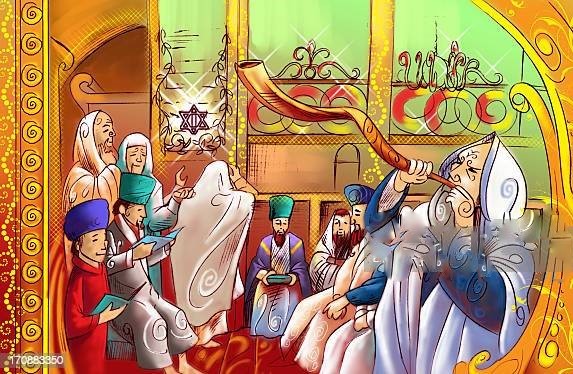📖 SATURDAY PRAYER: KETER-YESHIVAT HAVERIM יְשִׁיבָה חברים – BABYLONIAN TALMUD p135

READING: BETWEEN MIDNIGHT AND DAWN OF SATURDAY
It was also taught: One who intended to throw (from private ground into public) only for a
distance of two ells, but threw four, is freed by Rabha, for the reason that the original intention
was to throw within a permissible distance (throwing for a distance of two ells only was
permitted); but Abayi held him culpable, for the reason that the act originally intended was
accomplished. If one threw in public ground mistaking it for private, Rabh holds him free (for
the same reason as before), and Abayi holds him culpable (also for the same reason as he gave
in the previous case). Both instances though analogous are necessary. In the first instance (of
cutting), where Rabh holds the offender not culpable, the intention to cut off what was
prohibited did not exist, but in the second instance (throwing four ells), it could not be
accomplished without (carrying out the intention of) throwing for two ells, and passing the two
ells (the object landing at a distance of four). Now, lest one might say that Rabha coincides with
the opinion of Abayi, and from the latter instance it might be assumed that the offender intended
to throw two, but threw four ells, hence Rabha holds him not culpable, for the intention to throw
four ells did not exist; but if one threw four ells in what he thought was private ground, and
which turned out to be public ground, the intention was carried out, for the object thrown
reached its desired destination, and therefore lest one say that in this case Rabha coincides with
Abayi, the two instances are illustrated, and we are informed that not even in this case does
Rabha agree with Abayi.
MISHNA II.: The principal acts of labor (prohibited on the Sabbath) are forty less one–viz.:
Sowing, ploughing, reaping, binding into sheaves, threshing, winnowing, fruit-cleaning,
grinding, sifting, kneading, baking, wool-shearing, bleaching, combing, dyeing, spinning,
warping, making two spindle-trees, weaving two threads, separating two threads (in the warp),
tying a knot, untying a knot, sewing on with two stitches, tearing in order to sew together with
two stitches, hunting deer, slaughtering the same, skinning them, salting them, preparing the
hide, scraping the hair off, cutting it, writing two (single) letters (characters), erasing in order to
write two letters, building, demolishing (in order to rebuild), kindling, extinguishing (fire),
hammering, transferring from one place into another. These are the principal acts of labor–forty
less one.